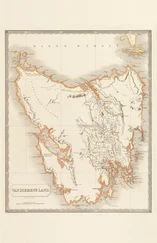Joshua Giddings - The Exiles of Florida
Здесь есть возможность читать онлайн «Joshua Giddings - The Exiles of Florida» — ознакомительный отрывок электронной книги совершенно бесплатно, а после прочтения отрывка купить полную версию. В некоторых случаях можно слушать аудио, скачать через торрент в формате fb2 и присутствует краткое содержание. Жанр: foreign_antique, foreign_prose, на английском языке. Описание произведения, (предисловие) а так же отзывы посетителей доступны на портале библиотеки ЛибКат.
- Название:The Exiles of Florida
- Автор:
- Жанр:
- Год:неизвестен
- ISBN:нет данных
- Рейтинг книги:5 / 5. Голосов: 1
-
Избранное:Добавить в избранное
- Отзывы:
-
Ваша оценка:
- 100
- 1
- 2
- 3
- 4
- 5
The Exiles of Florida: краткое содержание, описание и аннотация
Предлагаем к чтению аннотацию, описание, краткое содержание или предисловие (зависит от того, что написал сам автор книги «The Exiles of Florida»). Если вы не нашли необходимую информацию о книге — напишите в комментариях, мы постараемся отыскать её.
The Exiles of Florida — читать онлайн ознакомительный отрывок
Ниже представлен текст книги, разбитый по страницам. Система сохранения места последней прочитанной страницы, позволяет с удобством читать онлайн бесплатно книгу «The Exiles of Florida», без необходимости каждый раз заново искать на чём Вы остановились. Поставьте закладку, и сможете в любой момент перейти на страницу, на которой закончили чтение.
Интервал:
Закладка:
The flagrant injustice of holding the Creeks responsible for fugitive slaves resident in Florida, and under protection of the Spanish crown, must be obvious to every reader; and the inquiry will at once arise. Why did the Creek chiefs at New York consent to such a stipulation? The answer perhaps may be found in the secret article of that treaty, giving to the Creeks fifteen hundred dollars annually, forever , and to McGillivray twelve hundred dollars during life , and to six other chiefs one hundred dollars annually . These direct and positive bribes could not fail to have effect. The necessity for keeping this article secret from the Indians generally, and from the people of the United States, is very apparent; as the propriety of thus taking money, drawn from the free States to bribe Indian chiefs to obligate their nation to seize and return fugitive slaves, would have been doubted by savages as well as civilized men. But the duty of the Creeks to seize and return the Exiles was legally recognized by the treaty of Colerain, which admitted the treaty of New York to be in force. This was regarded as a continuance of the claims of Georgia, although the Creeks appear to have had no idea of entering into such stipulations.
Many circumstances now combined to quiet the apprehensions of the fugitive bondmen in Florida. The elder Adams had been elected President in the autumn of 1796, and assumed the duties of his office on the fourth of March following. A descendant of the Pilgrims, he had been reared and educated among the lovers of liberty; he had long served in Congress; he had reported upon the rights of the people of the Colonies in 1774, and was chairman of the committee who reported the Declaration of Independence, in 1776, and to its doctrines he had ever exhibited an unfaltering devotion. From such an Administration the claimants in Georgia could expect but little aid.
Another consideration, cheering to the friends of Freedom, was the total failure of the claims on Great Britain, for slaves lost during the War of the Revolution. The influence of those claimants was no longer felt in the Government. The public indignation was also somewhat excited against the institution of Slavery by incidents of a barbarous character, which had then recently transpired in North Carolina. After the promulgation of the Declaration of Independence, the Quakers of that State, conscious of its momentous truths, proceeded in good faith to emancipate their slaves; believing that the only mode in which they could evince their adherence to its doctrines.
The advocates of oppression were offended at this practical recognition of the “equal right of all men to liberty,” and, to manifest their abhorrence of such doctrines, arrested the slaves so emancipated as fugitives from labor . The Quakers, ever true to their convictions of justice, lent their influence, and contributed their funds, to test the legal rights of the persons thus set at liberty, before the proper tribunals of the State; and the question was carried to the Court of Appeals, where a final judgment was rendered in favor of their freedom. This decision appears to have disappointed general expectation among the advocates of slavery, and created much excitement throughout the State.
At the next session of the Legislature, an act was passed authorizing persons possessing landed property to seize and reënslave the people thus emancipated. But the planters of that State were usually possessed of wealth and intelligence, and, holding principles of honor, they refused to perform so degrading a service; and the liberated negroes continued to enjoy their freedom.
But the opponents of liberty became so clamorous against the example thus set in favor of freedom, that the Legislature passed an amendatory act, authorizing any person to seize, imprison and sell, as slaves, any negro who had been emancipated in said State, except those who had served in the army of the United States during the war of the Revolution .
Persons of desperate character, gamblers, slave-dealers and horse thieves, were now authorized to gratify their cupidity, by seizing and selling persons who had for years enjoyed their liberty; and the scenes which followed, were in no respect creditable to the State, to the civilization or Christianity of the age. Emancipated families were broken up and separated for ever. In some instances the wife escaped, while the husband was captured. Parents were seized, and their children escaped. Bloodhounds were employed to chase down those who fled to the forests and swamps, in order to avoid men more cruel than bloodhounds.
The Quakers, so far as able, assisted these persecuted people to escape to other States. Some left North Carolina on board ships; others fled north by land; and many reached the free States, where their descendants yet live. But even our free States did not afford a safe retreat from the cruelty of inexorable slave-catchers. Those free persons were seized in Philadelphia, and, under the fugitive slave law of 1793, were imprisoned in that city; and, what excites still greater wonder, were delivered up and carried back to bondage. 20 20 Vide Annals of IVth Congress, 2d Session
Some of these people, while in Pennsylvania, sent petitions to Congress, praying protection against such barbarity; and great excitement was aroused among Southern members by the presentation of such petitions. The Quakers of that State, and of New Jersey, also sent petitions to Congress, praying that these people may be protected against such piratical persecution. The popular feeling of the nation was shocked at these things, and great indignation against the institution, generally, was aroused.
We have no record of further attempts on the part of the claimants to obtain a return of the Exiles, after the Treaty of Colerain, until the close of Mr. Adams’s administration. During that period, the fugitives remained quietly in their homes, undisturbed by their former masters. Their numbers were often increased by new arrivals, as well as by the natural laws of population, and they began to assume the appearance of an established community.
In 1801, Mr. Jefferson entered upon the duties of President. He had himself penned the Declaration of Independence, and manifested a deep devotion to its doctrines. Nor do we find that any attempt was made by him for the return of the Exiles; nor were there any measures adopted to obtain indemnity for the loss of the claimants during the eight years of his Administration.
In 1802, a new law regulating intercourse with the Indian tribes was enacted, by which the holders of slaves were secured for the price or value of any bondmen who should leave his master and take up his residence with any Indian tribe resident in the United States, or Territories thereof – at least such was the construction given to this statute.
The Creeks, Cherokees, and other Southern tribes, had gradually adopted the institution of Slavery, so long practiced by their more civilized neighbors, and thus became interested in every effort to extinguish the hope cherished among their own bondmen, of regaining freedom by fleeing from their masters. And many circumstances now appeared to favor the idea, that no more attempts would be made to compel a return of the Exiles to bondage.
CHAPTER III.
HOSTILITIES MAINTAINED BY GEORGIA
Mr. Madison’s election – His character – Desire of people of Georgia to enslave Exiles – They demand annexation of Florida – Congress passes a law for taking possession of that Territory – General Mathews appointed Commissioner – Declares insurrection – Takes possession of Amelia Island – Spanish Government demands explanation – The President disavows acts of Mathews – Governor Mitchell succeeds Mathews – Georgia raises an Army – Florida Invaded – Troops surrounded by savage foes – Their danger – Their retreat – Stealing Slaves – Lower Creeks join Seminoles – Georgia demands their surrender – Chiefs refuse – Georgia complains – President refuses to Interfere – Another Invasion of Florida – Towns burned; Cattle stolen – Troops withdrawn from Amelia Island – Public attention directed toward our Northern frontier – Lord Cockrane enters Chesapeake Bay – Issues Proclamation to Slaves – Dismay of Slaveholders – Slaves go on board British ships – Several vessels enter Appalachicola Bay – Col. Nichols lands there with Troops – Gathers around him Exiles and Indians – Builds a Fort, arms it, and places Military Stores in Its Magazines – Treaty of Peace with England – Provision in regard to Slaves taken away during War – Claimants of the Exiles encouraged – Col Nichols delivers Fort to the Exiles – Their plantations, wealth, and social condition – Our Army – General Gaines represents Fort as in possession of Outlaws – Plans for its destruction – Correspondence – General Jackson’s order – Col. Clinch’s Expedition – Met by Sailing-Master Loomis and two gun-boats – Fort blown up – Destruction of human life – Negroes captured and enslaved – Property taken – Claimed by Governor of Florida – First Seminole War commenced.
Читать дальшеИнтервал:
Закладка:
Похожие книги на «The Exiles of Florida»
Представляем Вашему вниманию похожие книги на «The Exiles of Florida» списком для выбора. Мы отобрали схожую по названию и смыслу литературу в надежде предоставить читателям больше вариантов отыскать новые, интересные, ещё непрочитанные произведения.
Обсуждение, отзывы о книге «The Exiles of Florida» и просто собственные мнения читателей. Оставьте ваши комментарии, напишите, что Вы думаете о произведении, его смысле или главных героях. Укажите что конкретно понравилось, а что нет, и почему Вы так считаете.












